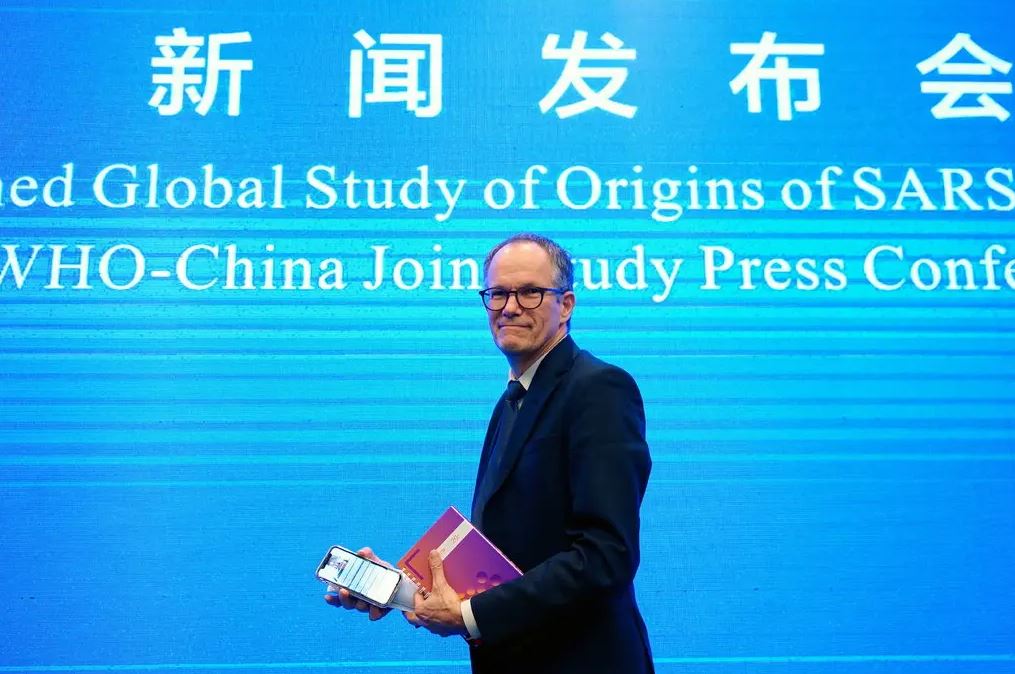The WHO’s top investigator investigating the cause of the Covid-19 outbreak was fired “following findings of sexual misconduct,” according to an agency spokesman.
The Financial Times reported on Wednesday that food safety and animal-borne illness specialist Peter K. Ben Embarek was fired last year.
Marcia Poole, a spokesperson for the World Health Organisation, said in an email that the results originate from incidents that occurred in 2015 and 2017. The claims were originally brought to the attention of the agency’s investigative team in 2018. It took many years to complete the administrative and investigative procedures because “there was a significant backlog,” she added.
The agency did not elaborate on the specifics of the charges, but did say that more claims had been made against Dr. Ben Embarek but “could not be fully investigated” due to the lack of cooperation from the victim(s).
Unfortunately, Dr. Ben Embarek was unavailable for comment at this time. However, he assured Reuters that a dispute from 2017 had been resolved. Reuters quotes him as saying, “I am not aware of any other complaints, and no other complaints have ever been brought to my attention.” I respectfully disagree that this behaviour constitutes harassment, and I feel confident in my ability to uphold my legal rights.
Dr. Ben Embarek led a World Health Organisation investigation team to Wuhan, China in 2021 to learn more about the start of the Covid-19 epidemic. The joint inquiry, which China had repeatedly postponed, was conducted by international experts chosen by the W.H.O. and specialists from China.
Dr. Ben Embarek, speaking at a press conference in Wuhan, said it was “extremely unlikely” that the virus spilled from a Wuhan facility because of the lab’s safety measures. A natural reservoir is suspected due to “all the work that has been done on the virus and trying to identify its origin,” he stated during the press conference.
The W.H.O. team came under fire for supporting theories put out by Chinese authorities, such as the possibility that the virus originated in a country other than China and spread via frozen food exports. The foreign researchers spoke highly of the Chinese specialists during the press briefing.
However, after returning home, some mission members claimed that China had withheld requested information. Dr. Ben Embarek, in an interview with Science, confirmed that his team faced political challenges.
The majority of our Chinese coworkers were neither scientists or public health professionals, and there were anywhere from 30 to 60 of them.
U.S. officials were worried that the Chinese government would exert too much influence on the results as the team prepared to disclose them.
“introduction through a laboratory incident” was deemed “extremely unlikely” by the investigation, but “introduction through the food chain” was deemed “possible.” They decided that animal overflow was the most probable cause of the infection.
U.S. intelligence agencies have reached conflicting findings regarding the probable origins of the epidemic, and the lab leak explanation continues to be controversial. Most virus experts agree that an animal at a Wuhan market was the likely source of the outbreak. However, conclusive proof for any of the theories is still missing.
Dr. Ben Embarek also oversaw the World Health Organization’s “One Health” programme, which looks for links between people’s health and that of animals and the environment.
In recent years, the W.H.O. has also been criticised for not doing enough to prevent sexual misconduct. During an Ebola epidemic in the Democratic Republic of the Congo in 2021, investigators revealed that agency employees had sexually molested or exploited women and girls.
“Over the past 18-20 months, W.H.O. has embarked on a comprehensive programme to drive systemic change throughout the organisation to prevent and respond to sexual misconduct,” Ms. Poole said in an email. She said that the agency’s backlog had been cleared and that future investigations will be concluded in 120 days or less.
In March, a new policy against sexual misbehaviour was implemented. The new policy “is a key part of making ‘zero tolerance’ a reality and not merely a slogan,” Tedros Adhanom Ghebreyesus, the director general of the W.H.O., said in a statement.

